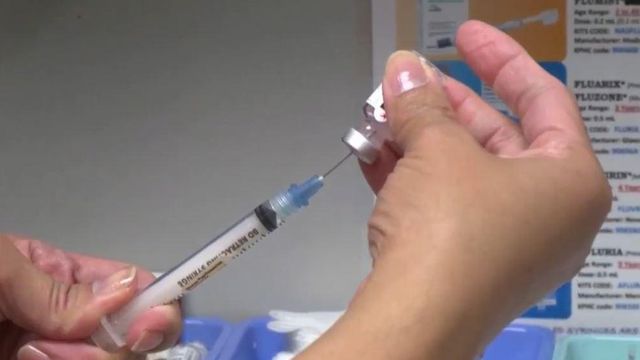Experts: Too many children don't get second dose of HPV vaccination for full protection
The Human Papillomavirus cancers are a significant health threat, according to directors of 70 major cancer centers across the country.
Posted — UpdatedNearly one in four people in the United States is infected with HPV.
Medical researchers around the country are developing strategies to eliminate HPV-related cancers and associated deaths.
The UNC Lineberger Comprehensive Cancer Center is one of 70 National Cancer Institute-designated centers sounding the alarm, because the HPV-vaccination rate remains "woefully low.”
Dr. Noel Brewer from the UNC Gilling’s School of Global Public Health said even though 6 out of 10 children get the vaccine, many children don't get a second dose to provide full protection. He said part of the problem is miscommunication between parents and providers.
"The reason for low HPV vaccine uptake is that providers think that parents don't want it," he said. "Which is a misunderstanding. Parents really do, but they often have questions. And the parents may have questions that the providers are not prepared to answer."
Brewer said that the HPV vaccine, called Guardasil 9, is very effective in preventing HPV-related cancers.
The evidence of a rise in sexual activity among teens is reflected in the more than 31,000 cases of new HPV-related cancers projected for this year alone.
In 2016, less than 43 percent of boys and girls received the recommended doses. It's recommended for children at 12 years of age in two doses, about a year apart.
"HPV vaccination is best before children are exposed and also when people are younger because the body mounts a more vigorous immune response when people are younger," Brewer said.
Doctors said too often parents are afraid to acknowledge the possibility of sexual activity in their adolescent child.
But they say that getting that vaccine is not an endorsement of sexual activity among adolescents, but rather a smart, preventive measure for the child’s longterm health.
Eleven or 12 years of age is also the time when children are due for meningitis and whooping cough vaccinations, and doctors recommend also getting the HPV vaccination.
Brewer said that health providers need to be more active in discussing the HPV-vaccine with parents and providing all the information they need to make sure their child is protected.
Related Topics
• Credits
Copyright 2024 by Capitol Broadcasting Company. All rights reserved. This material may not be published, broadcast, rewritten or redistributed.





